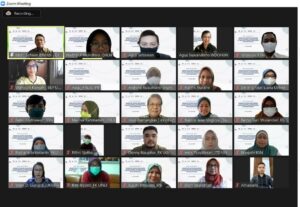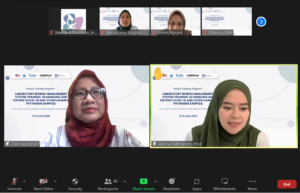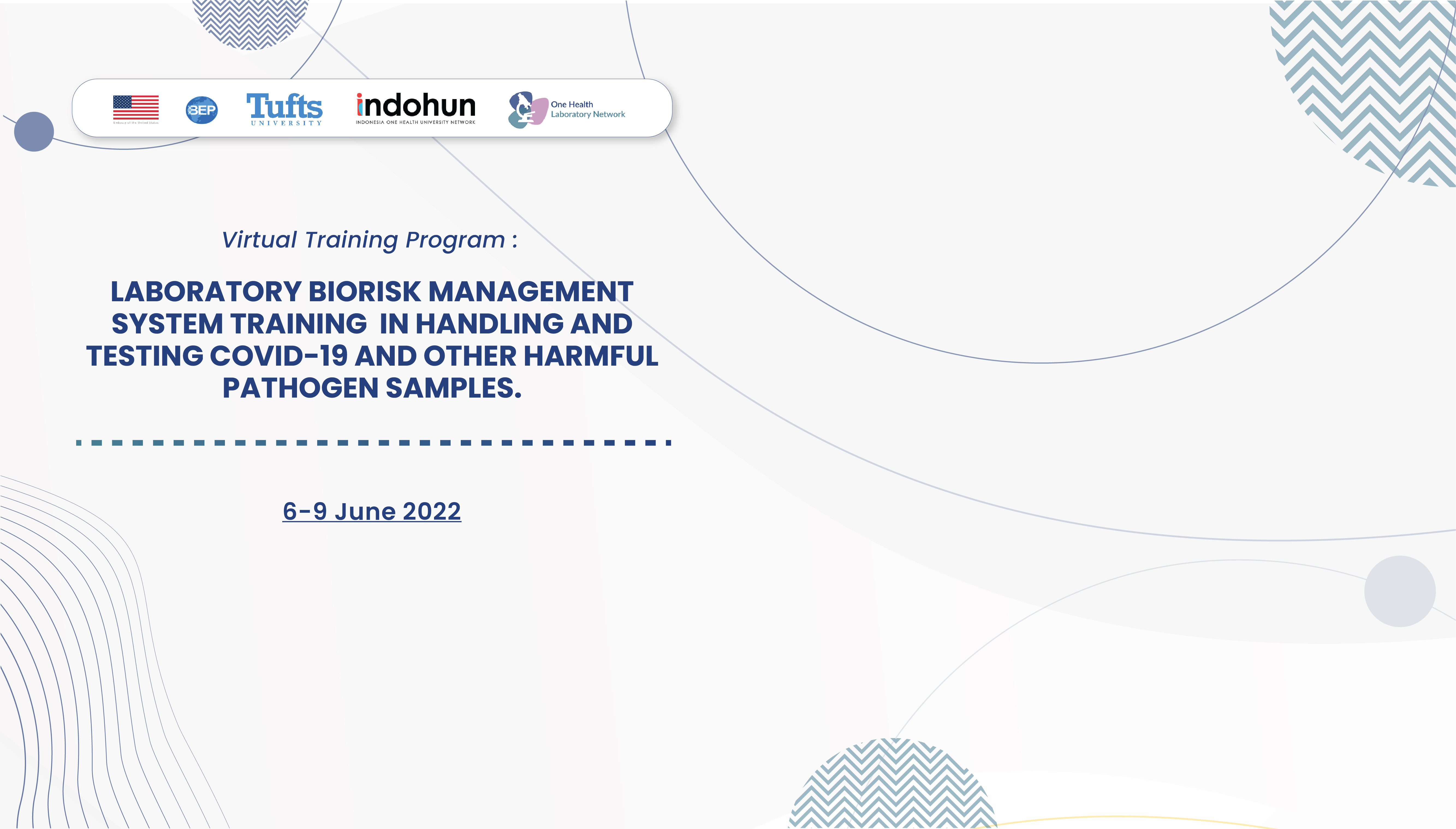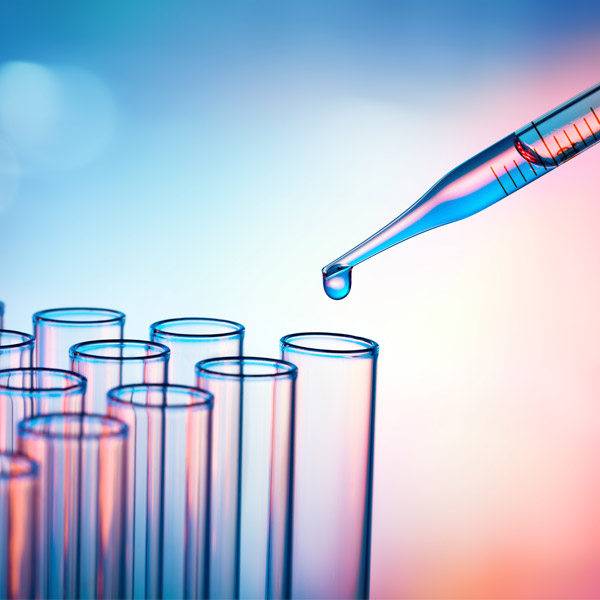
Participants of Laboratory Biorisk Management System Training in Handling and Testing COVID-19 and Other Harmful Pathogen Samples
Coronavirus Disease 2019 (COVID-19) is an infectious disease caused by SARS-CoV-2, which was first discovered at the end of 2019 and is still a fairly dangerous infectious disease. Currently worldwide, there are more than 5 41 million people who have been infected with COVID-19, and around 6 million cases were found in Indonesia with a total death of 156,662 as of June 14, 2022 . However, as a tropical country with a high population, the threat of an emerging infectious disease (Emerging Infectious Disease/EID) still exists, even though COVID-19 is no longer in a pandemic status. Therefore, good case analysis and detection skills are needed in the effort to control infectious diseases in the community.
The laboratory has a very important role in tracking, preventing and controlling disease. Patient management decisions, and the implementation of disease control depend on the results of laboratory analysis. So that every reference laboratory for testing COVID-19 and other dangerous pathogens is required to produce fast and precise test results. In carrying out its duties, the laboratory involves not only viruses but also rickettsiae , chlamydia, bacteria, protozoa, and fungi that can easily contaminate the surrounding environment if not managed properly. Therefore, comprehensive attention is needed in terms of managing biosafety and biosecurity in the laboratory. The biorisk management carried out must also be in accordance with a standardized system in order to minimize the risk of harm as well as possible.

Discussion Session – Laboratory Biorisk Management System Training in Handling and Testing COVID-19 and Other Harmful Pathogen Samples
In order to support implementation in the field, a strong commitment from the laboratory management is needed to ensure that all laboratory components are properly available. Starting from the completeness of facilities and infrastructure, as well as biosafety and biosecurity policies, to the capacity of laboratory personnel. Increasing the capacity of laboratory personnel on a regular basis in accordance with existing scientific developments is very important, so that laboratory management can be carried out as well as possible.
In connection with the above, INDOHUN-OHLN supported by the Bios security Engagement Program (BEP) conducted a Laboratory Biorisk Management System Training in Handling and Testing for COVID-19 and Other Hazardous Pathogen Samples. This activity is intended for university laboratory staff who are part of the INDOHUN-OHLN network. For this reason, on 6-9 June 2022, INDOHUN-OHLN held a Laboratory Biorisk Management System Training in Handling and Testing for COVID-19 and Other Hazardous Pathogen Samples online, attended by 35 participants from 26 universities.
The activity began with a session of delivering the minutes of the event by Prof. dr. Agus Suwandono, M.PH, dr.PH (INDOHUN Coordinator), followed by remarks by Mrs. Wahyuni as the Manager of the Biosecurity Engagement Program (BEP) in Indonesia, the United States Embassy, Jakarta and opening remarks by Dr. Mohammad Sofwan Efendi, M.Ed (Director of Resources, Directorate General of Higher Education Research and Technology, Ministry of Education and Culture – RI Research and Technology).
The material presented during the 4-day training was a total of 13 materials, namely:
- Introduction to Biosafety and Biosecurity
- National Standardization System in Indonesia and Awareness of SNI ISO 35001:2019 related to biorisk management for laboratories and other related organizations
- Risk Assessment and Mitigation Steps
- Training and Competency Assessment in the Molecular Laboratory
- Facility and Safety Equipment Requirements for Molecular Testing (Including Use of BSC)
- Good Microbiological Practices and Procedures in Molecular Laboratories
- Selection and Use of Proper Personal Protective Equipment
- Collection and Transportation of Biological Materials
- Storage and Inventory of Valuable Biological Materials
- Decontamination and Treatment of Biological Waste
- Occupational Health
- External Quality Assurance (PME) and Internal Quality Assurance (PMI)
- Incident Reporting and Investigation
Every day a session is opened for training participants to be able to submit a review of each material that has been given and it is hoped that after this training activity laboratory representatives will know the proper management of the laboratory biorisk management system for handling and testing COVID-19 and samples of other dangerous pathogens.


Leave a Reply